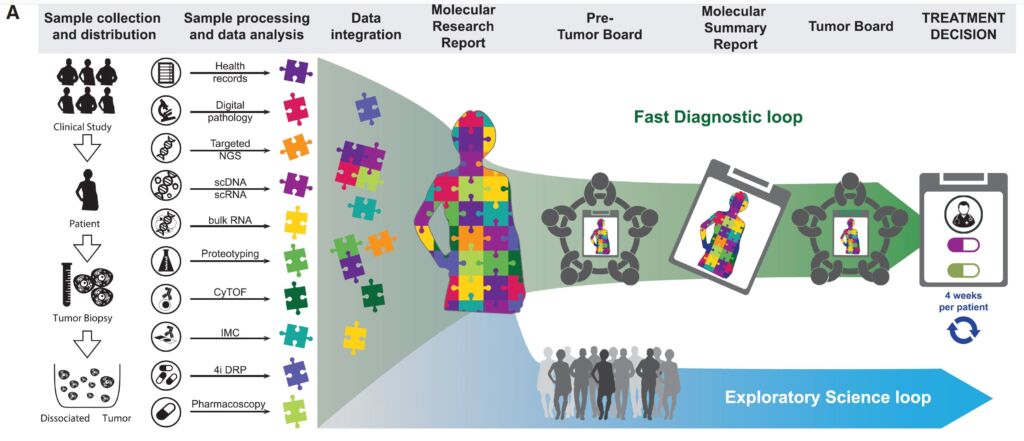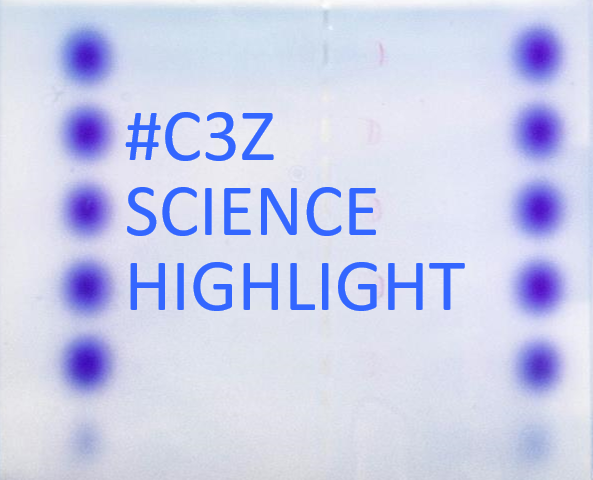Cancer Cell
The Tumor Profiler Study: integrated, multi-omic, functional tumor profiling for clinical decision support
Anja Irmisch, Ximena Bonilla, Stéphane Chevrier, Kjong-Van Lehmann, Franziska Singer , Nora C Toussaint, Cinzia Esposito, Julien Mena, Emanuela S Milani, Ruben Casanova, Daniel J Stekhoven, Rebekka Wegmann, Francis Jacob, Bettina Sobottka, Sandra Goetze, Jack Kuipers, Jacobo Sarabia Del Castillo, Michael Prummer, Mustafa A Tuncel, Ulrike Menzel, Andrea Jacobs, Stefanie Engler, Sujana Sivapatham, Anja L Frei, Gabriele Gut, Joanna Ficek, Nicola Miglino, Tumor Profiler Consortium; Rudolf Aebersold, Marina Bacac, Niko Beerenwinkel, Christian Beisel, Bernd Bodenmiller, Reinhard Dummer, Viola Heinzelmann-Schwarz, Viktor H Koelzer, Markus G Manz, Holger Moch, Lucas Pelkmans, Berend Snijder, Alexandre P A Theocharides, Markus Tolnay, Andreas Wicki , Bernd Wollscheid, Gunnar Rätsch, Mitchell P Levesque
*CCCZ Members in bold
Abstract
The application and integration of molecular profiling technologies create novel opportunities for personalized medicine. Here, we introduce the Tumor Profiler Study, an observational trial combining a prospective diagnostic approach to assess the relevance of in-depth tumor profiling to support clinical decision-making with an exploratory approach to improve the biological understanding of the disease.
Cancer Cell. 2021 Jan 20;S1535-6108(21)00048-9.
doi: 10.1016/j.ccell.2021.01.004. Online ahead of print.
Mitch Levesque, professor at the University of Zurich and one of the article’s corresponding authors:
“The Tumor Profiler Project was developed by a public/private consortium in Basel and Zürich to improve the precision medicine toolkit for cancer care. Our aim was to translate the incredible advances of single-cell techniques as well as next generation genomic and proteomic technologies, and the most sophisticated computational approaches, into a clinical setting. By harnessing the innovation of world-class research labs in Zürich and Basel, we hope to drive new approaches to cancer diagnostics, monitoring, and therapy.”
Read more
